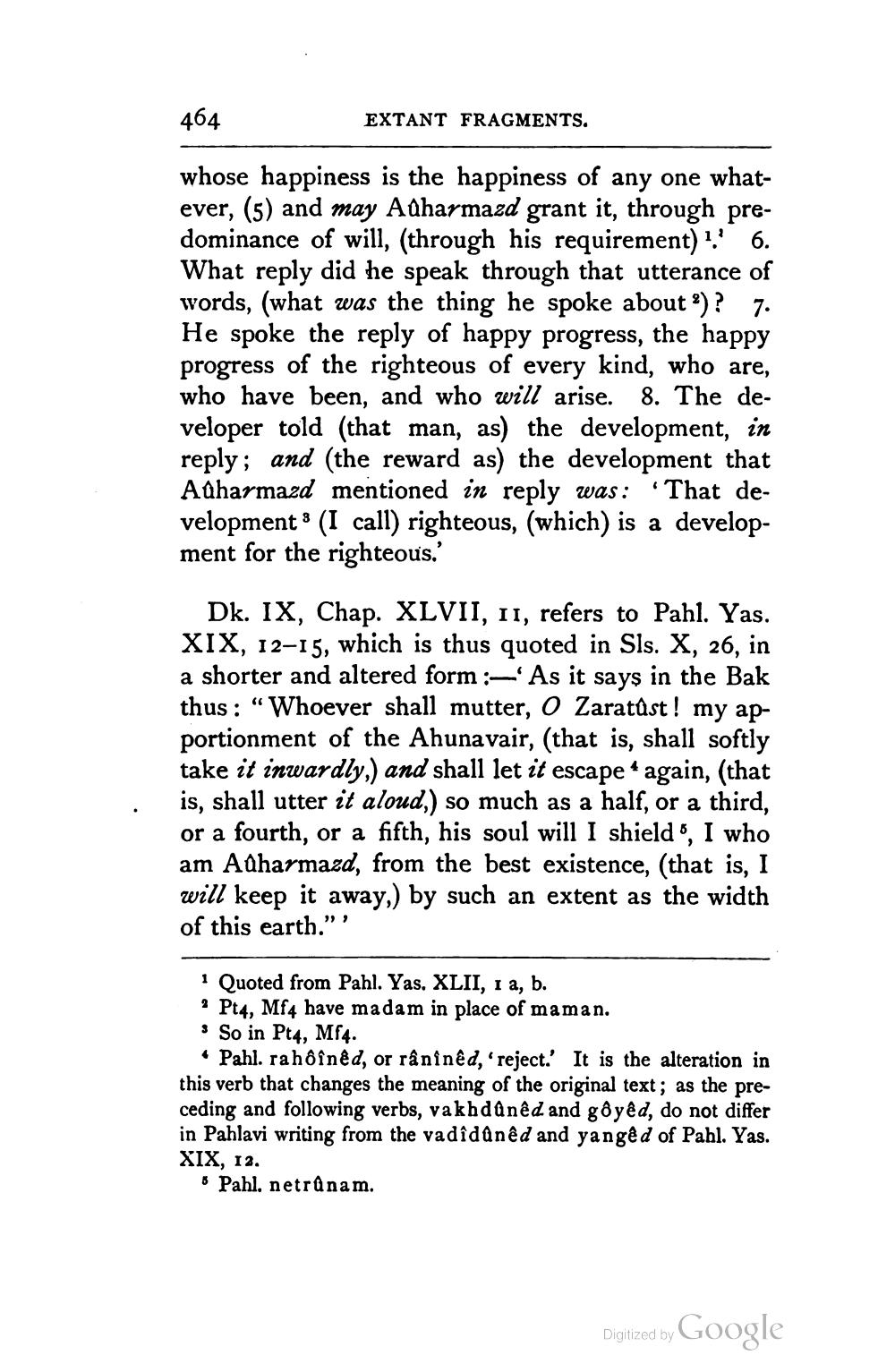________________
464
EXTANT FRAGMENTS.
whose happiness is the happiness of any one whatever, (5) and may Adharmazd grant it, through predominance of will, (through his requirement) 1' 6. What reply did he speak through that utterance of words, (what was the thing he spoke about?)? 7. He spoke the reply of happy progress, the happy progress of the righteous of every kind, who are, who have been, and who will arise. 8. The developer told (that man, as) the development, in reply; and (the reward as) the development that Adharmazd mentioned in reply was: That development (I call) righteous, (which) is a development for the righteous.
Dk. IX, Chap. XLVII, 11, refers to Pahl. Yas. XIX, 12–15, which is thus quoted in Sls. X, 26, in a shorter and altered form :- As it says in the Bak thus: “Whoever shall mutter, O Zaratust! my apportionment of the Ahunavair, (that is, shall softly take it inwardly,) and shall let it escape - again, (that is, shall utter it aloud.) so much as a half, or a third, or a fourth, or a fifth, his soul will I shield", I who am Adharmazd, from the best existence, (that is, I will keep it away,) by such an extent as the width of this earth.”'
i Quoted from Pahl. Yas. XLII, 1 a, b. ? Pt4, Mf4 have madam in place of maman.
So in Pt4, Mf4. • Pahl. rahôînêd, or rânined, reject.' It is the alteration in this verb that changes the meaning of the original text; as the preceding and following verbs, vakhdanêd and göyêd, do not differ in Pahlavi writing from the vadîd ûnêd and yangêd of Pahl. Yas. XIX, 12.
o Pahl, netrūnam.
Digitized by Google




